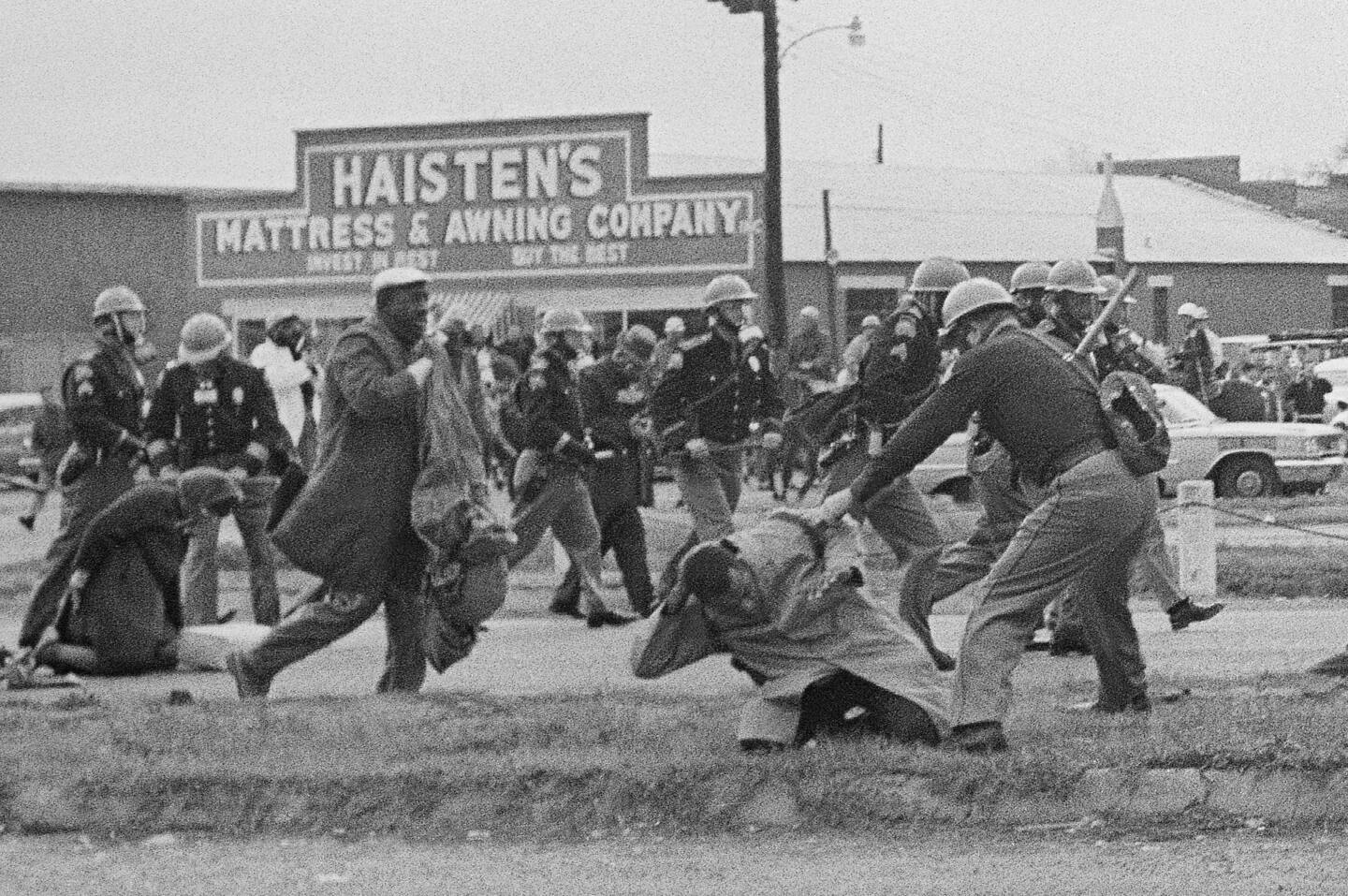Time for some more ‘good trouble’ on voting rights, 56 years after ‘Bloody Sunday’

Only, they never made it to Montgomery. In fact, they were just about one mile into their 54-mile march — just over the Edmund Pettus Bridge — when a line of Alabama state troopers advanced on Lewis and the peaceful marchers with billy clubs, tear gas and horses.
The cracks of those clubs, the shrieking of those marchers were not just heard in the moment. They were heard nationwide later that night, when ABC interrupted its broadcast of “Judgment at Nuremberg” to show footage of the horror — a horror that proved pivotal in the civil rights movement. A week later, urging passage of the Voting Rights Act, President Lyndon Johnson said this before a joint session of Congress:
Many of the issues of civil rights are very complex and most difficult. But about this there can and should be no argument. Every American citizen must have an equal right to vote. … What happened in Selma is part of a far larger movement which reaches into every section and State of America. It is the effort of American Negroes to secure for themselves the full blessings of American life. Their cause must be our cause too.
Five months after what became known as “Bloody Sunday,” Johnson signed the Voting Rights Act of 1965 into law. He handed one of the pens used to sign the historic legislation to Lewis. “That pen, and the signing of the act, helped change America forever,” Lewis wrote in the foreword of “Destiny of Democracy: The Civil Rights Summit at the LBJ Presidential Library.” “Without the signing of the Voting Rights Act, in my estimation, there would not be a Jimmy Carter, or a Bill Clinton, and I’m positive there would not be a Barack Obama as president of the United States of America.”
But today, with racial disparities in everything from the impact of the coronavirus pandemic to the use of lethal force by law enforcement, the full blessings of American life extolled by Johnson remain elusive for African Americans. And their equal right to vote has been under relentless assault since 2013, the year the Supreme Court decision in Shelby County v. Holder gutted the main provision of the Voting Rights Act, which forced certain states to get preclearance of voting rights changes from the Justice Department before they could be enacted.
Last week, the Supreme Court heard arguments involving voting restrictions in Arizona that could snuff out the Voting Rights Act entirely. Also last week, Georgia Republicans started moving legislation aimed at restricting access to the ballot in a number of ways, including leaving it up to each county whether to have any Sunday early voting. This would be a devastating blow to “Souls to the Polls,” the Sunday practice of African Americans casting their early voting ballots after church service. Such aggressive moves to thwart the vote are happening after President Biden became the first Democrat to win the state since 1992 and after Democrats won both of Georgia’s U.S. Senate seats.
Georgia is not alone in putting limits on the right to vote. A report from the Brennan Center for Justice notes, “As of February 19, 2021, state lawmakers have carried over, prefiled or introduced 253 bills with provisions that restrict voting access in 43 states.“ With the “For the People Act,” Congress is stepping in to stop this.
Officially known as H.R. 1, the legislation would make it easier to vote and harder for states to purge their voter rolls. While it passed the House on March 3, the bill’s prospects don’t look so good in an evenly divided Senate that requires 60 votes to get anything done. The same fate awaits H.R. 4, or the “John Lewis Voting Rights Act,” which would reinstate the Justice Department’s preclearance authority in the 1965 act.
But the American spirit, and specifically the spirit of Black Americans, will neither be diminished nor deterred by any of the efforts to deny them their right to vote. And they will get a major assist from Biden on Sunday when he issues an executive order on voting. As part of this action, the president is directing federal agencies to expand access to voter registration and to assist states to do the same under the National Voter Registration Act.
The disastrous and destabilizing tenure of Donald Trump in the White House reminded all of us how precious our democracy is. How precious our Constitution is. And how, if we want its words to truly mean something, we must actively work to make them mean something.
Lewis, who passed away last July, would call that “good trouble.” It’s what brought him to that bridge spanning the Alabama River 56 years ago. And if there is anything worth getting into trouble for, it’s safeguarding the right to vote for every U.S. citizen — Blacks, students, essential workers, the elderly, rural voters, all of us. It’s our country, too.
Read more:






